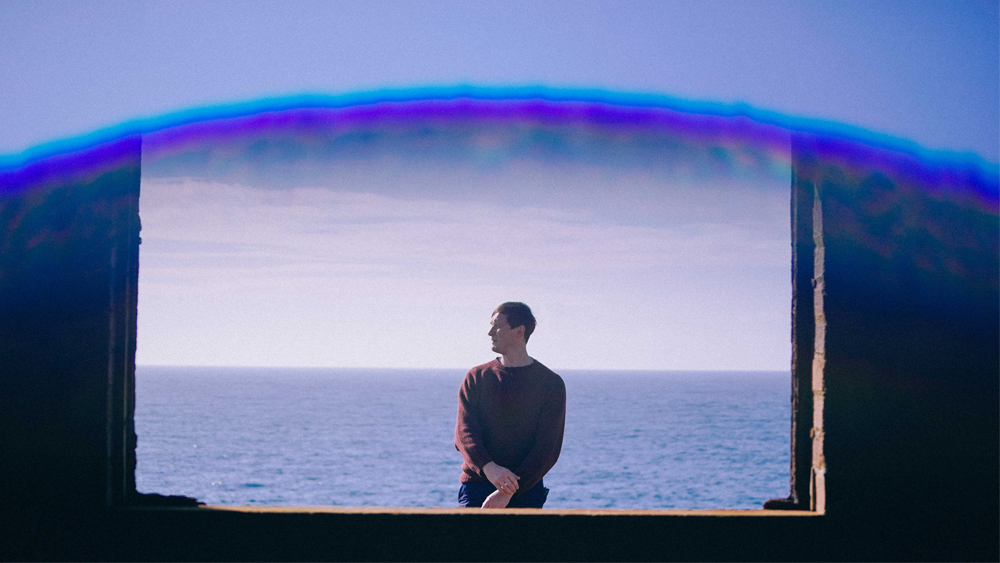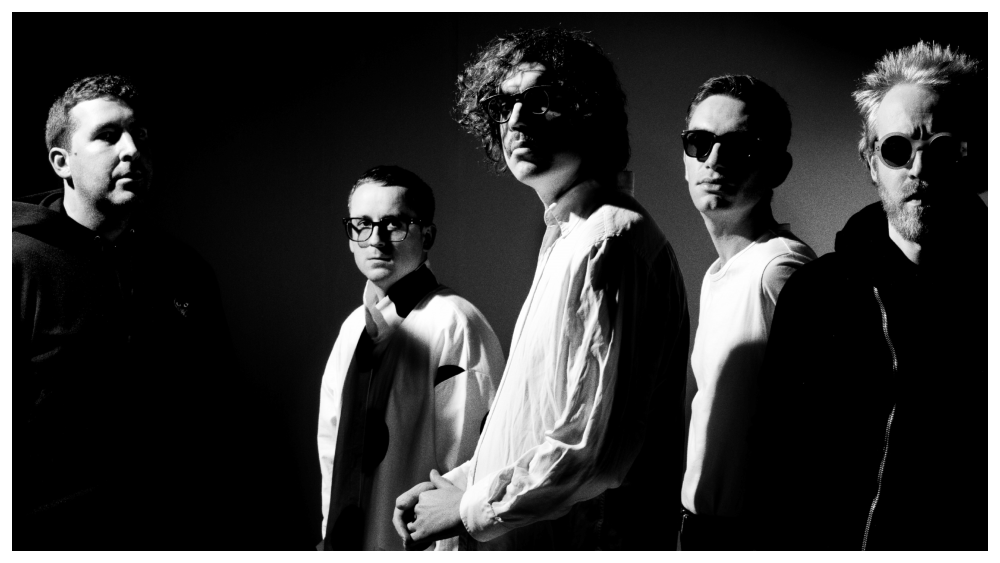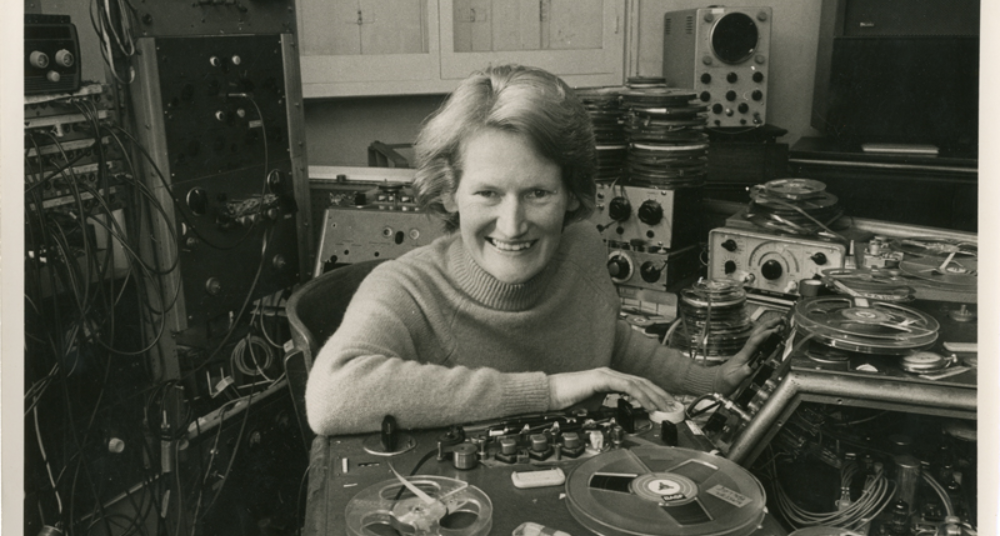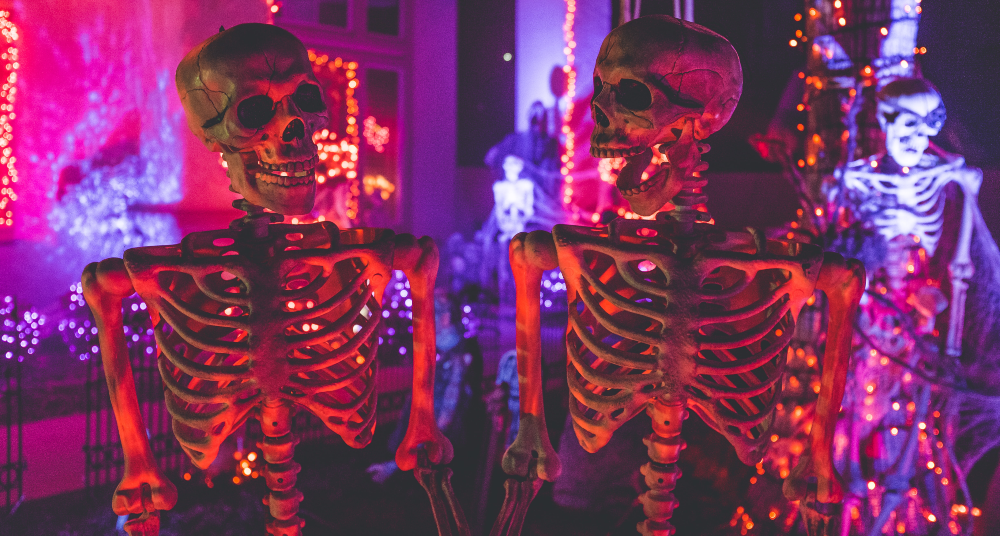‘Nature’s not for everyone, but for me, it’s the one true reset. Taking that a step further, the sea is the thing that does it,’ says multi-instrumentalist and soother of troubled minds, Erland Cooper.
Having cut his teeth on the indie circuit in The Magnetic North and Erland and the Carnival, he made his debut solo flight with the avian-themed Solan Goose in 2018.
While that record celebrated the bird life of his native Orkney, for the second album of what will be a triptych, Erland looks to the vast mass of water that surrounds the Scottish archipelago.
Sule Skerry, much like its predecessor, treads a largely ambient path of elegantly layered loops and simple, yet vibrant, arrangements.
Nevertheless, the album evokes its chief inspiration with a more ominous undertow than the graceful sketches of Solan Goose.
Additionally, Erland expanded his collection of ‘sonic postcards’ to collect recordings of impulse responses, and reverberation recordings of the island’s spaces from the local town hall to the inside of a Neolithic cairn.
Here we chat to Erland about marrying electronic and classical music, his idiosyncratic processes, and how music has the power to clear the debris from a busy mind…
What inspired you to initially start this triptych?
It was a poem by George Mackay Brown, which I won’t embarrass myself by reading. It touches on the elements, and it touches on the essence of something, and I’m only ever trying to capture the essence of. Not just Orkney, but to me Orkney has this magnetic pull it drags me there.
And this poem, in particular, touches on the magic of Orkney. Or really the magic of nature, landscape, community, people, place. It’s that magic that intrigues me and ultimately, it’s elemental, it’s the air, the sky and the light (the first record) and the sea, the rhythms of the sea (the second record).
It’s not quite as meditative, I think. A few people have gone, “ooh, there’s more energy, more rhythm.” Well, the sea’s kind of like that. If you look over the top of a ferry and you look down the back you see all of these kind of spurring tidals. There’s a lot of cross rhythms, danger and distortion.
But Orkney can be anywhere. It’s more about evoking the essence of childhood memory, and I’m not saying for a minute that my childhood was always sunny. We all have challenges, but when you evoke childhood memory, you evoke an innocence. It’s got a purity to it.
What’s behind your unusual approach to your latest track First of the Tide?
There’s a particular acoustic, similar to the Egyptian pyramids built around the same time, that supports the voice at a whisper. It just sounded interesting to me. I just wanted to capture these sonic postcards, the reverbs of these spaces, but not the traditional spaces like the cathedral, unusual spaces like the cairn, or under the lifeboat pier, or my local town hall.
To be absolutely frank, I think it’s just for me. A listener couldn’t care less if that sounds like a reverb from there or there or there. But to me it brings me closer to the landscape. It tickles me, it makes me laugh.
Having cut his teeth on the indie circuit in The Magnetic North and Erland and the Carnival, he made his debut solo flight with the avian-themed Solan Goose in 2018.
While that record celebrated the bird life of his native Orkney, for the second album of what will be a triptych, Erland looks to the vast mass of water that surrounds the Scottish archipelago.
Sule Skerry, much like its predecessor, treads a largely ambient path of elegantly layered loops and simple, yet vibrant, arrangements.
Nevertheless, the album evokes its chief inspiration with a more ominous undertow than the graceful sketches of Solan Goose.
Additionally, Erland expanded his collection of ‘sonic postcards’ to collect recordings of impulse responses, and reverberation recordings of the island’s spaces from the local town hall to the inside of a Neolithic cairn.
Here we chat to Erland about marrying electronic and classical music, his idiosyncratic processes, and how music has the power to clear the debris from a busy mind…
What inspired you to initially start this triptych?
It was a poem by George Mackay Brown, which I won’t embarrass myself by reading. It touches on the elements, and it touches on the essence of something, and I’m only ever trying to capture the essence of. Not just Orkney, but to me Orkney has this magnetic pull it drags me there.
And this poem, in particular, touches on the magic of Orkney. Or really the magic of nature, landscape, community, people, place. It’s that magic that intrigues me and ultimately, it’s elemental, it’s the air, the sky and the light (the first record) and the sea, the rhythms of the sea (the second record).
It’s not quite as meditative, I think. A few people have gone, “ooh, there’s more energy, more rhythm.” Well, the sea’s kind of like that. If you look over the top of a ferry and you look down the back you see all of these kind of spurring tidals. There’s a lot of cross rhythms, danger and distortion.
But Orkney can be anywhere. It’s more about evoking the essence of childhood memory, and I’m not saying for a minute that my childhood was always sunny. We all have challenges, but when you evoke childhood memory, you evoke an innocence. It’s got a purity to it.
What’s behind your unusual approach to your latest track First of the Tide?
There’s a particular acoustic, similar to the Egyptian pyramids built around the same time, that supports the voice at a whisper. It just sounded interesting to me. I just wanted to capture these sonic postcards, the reverbs of these spaces, but not the traditional spaces like the cathedral, unusual spaces like the cairn, or under the lifeboat pier, or my local town hall.
To be absolutely frank, I think it’s just for me. A listener couldn’t care less if that sounds like a reverb from there or there or there. But to me it brings me closer to the landscape. It tickles me, it makes me laugh.
What was the process of collecting and using the field recordings you made like?
You can record field recordings at such a good quality level these days that you can incorporate them into the track, but to capture the reverb of the space, for want of a better word, you have to use what’s called an impulse response.
In very crude terms, a bit like when you clap in a room you can hear the echo. Imagine recording that and taking the clap away, you’re just left with the echo and you put that echo on to your new instrument in the studio.
I don’t believe this romantic view that you have to be sat at a window with a huge view out to the sea to be able to write. I think you need to go to the sea, or to the landscape, or the workplace, or the hedonistic club environment and spend four hours in it. Then take that back as an etching in your mind, or on your phone, or on your tape recorder, or on your wee book, and then when you’re in the studio you know what to discard and what to keep. It’s that critical distance.
Sonically, how does this record differ to Solan Goose?
If I’m honest I’ve not compared. I think if I do that then I’ll be going backwards and I’m trying to get onto the third one. All I’m doing is exploring and learning a new set of ways to work, and it’s really intriguing.
I come from the indie-band world, best unknown indie bands, of which there are millions, but I didn’t mean to do that, I fell into it. To be doing something independent, yet still in collaboration but in a different way, it’s a real joy to me.
It’s explorative, it’s playful in a way. Also, I’m learning a whole new way of hearing and seeing, but ultimately everything I do is wrapped up in narrative, subtly, because for me the narrative becomes the map, it becomes guide for which the decisions are made. On these three records, I’m ploughing a particular field.
You’ve got another group of collaborators on this record; how did they impact the album?
They make me want to write better, and they remind me not to waste a note. Every note is there for a reason.
Sometimes I have to stick to my guns because they’re all incredibly talented artists in their own right who all have different ways of seeing. I had to remined myself of what I wanted. I think they respect that as well. I found it deeply inspiring.
You can record field recordings at such a good quality level these days that you can incorporate them into the track, but to capture the reverb of the space, for want of a better word, you have to use what’s called an impulse response.
In very crude terms, a bit like when you clap in a room you can hear the echo. Imagine recording that and taking the clap away, you’re just left with the echo and you put that echo on to your new instrument in the studio.
I don’t believe this romantic view that you have to be sat at a window with a huge view out to the sea to be able to write. I think you need to go to the sea, or to the landscape, or the workplace, or the hedonistic club environment and spend four hours in it. Then take that back as an etching in your mind, or on your phone, or on your tape recorder, or on your wee book, and then when you’re in the studio you know what to discard and what to keep. It’s that critical distance.
Sonically, how does this record differ to Solan Goose?
If I’m honest I’ve not compared. I think if I do that then I’ll be going backwards and I’m trying to get onto the third one. All I’m doing is exploring and learning a new set of ways to work, and it’s really intriguing.
I come from the indie-band world, best unknown indie bands, of which there are millions, but I didn’t mean to do that, I fell into it. To be doing something independent, yet still in collaboration but in a different way, it’s a real joy to me.
It’s explorative, it’s playful in a way. Also, I’m learning a whole new way of hearing and seeing, but ultimately everything I do is wrapped up in narrative, subtly, because for me the narrative becomes the map, it becomes guide for which the decisions are made. On these three records, I’m ploughing a particular field.
You’ve got another group of collaborators on this record; how did they impact the album?
They make me want to write better, and they remind me not to waste a note. Every note is there for a reason.
Sometimes I have to stick to my guns because they’re all incredibly talented artists in their own right who all have different ways of seeing. I had to remined myself of what I wanted. I think they respect that as well. I found it deeply inspiring.
There’s a symbiosis between city and country, electronic and classical music running through these albums, what motivates you marry these opposing forces?
This palette of sounds developed itself really, which was electronic, and tape saturation, tape loops in particular, combined with piano and simple orchestration.
I’m attracted to simplicity and it’s and it’s much harder to do, I think, and that’s what attracts me to it.
To be frank, not using electronics is like if you went back 200 years and didn’t use a piano or a violin, you’d be mad. It’s the instrument of our time.
I build my own instruments as well, and by that, I mean I create my own contact sampled instruments. It makes perfect sense to combine classical instrumentation, and these electronic instruments aren’t modern, they’re from the seventies.
But then my own instruments are unique to me. I think it’s like the human voice, it’s so harmonically rich, but it’s so unique to you. Your voice has tones and layers that are unique to you, everyone’s got a Juno-60 or a Korg MS-20, so what? It’s what you put through them that makes them interesting. Again, just by exploration and default there was no road map, but I like limitations. So rather than use 20 synths I’ll use two.
Has making these records been as much an opportunity to reconnect with Orkney as anything else?
I think reconnection’s a lovely word. Redemption, restoration but ultimately hopeful transportation. It will all become clear in the last one, to me anyway.
All the elements, all the people, all the myths come together to form community. That’s what I’m trying to do.
You know island life, as I see it, isn’t about going up in the summer when all the tourists are there and its red skies. That’s beautiful, but what intrigues me more is going up in winter. Half the pubs are closed, it all boards up for winter. That’s when you get the magic and you get the community and you see why story telling is so vital.
That is common to the British Isles, we’re a brilliantly quirky bunch. But there’s something about Orkney, which just stubbornly clings on in its own right, doing its own thing.
It’s not a particularly idyllic view of nature.
It can be barren, and alien-like to some people. It can be tough and alienated and alienating.
Sadly, the landscape is diminishing, it’s changing its shape, it’s size. Without being overt, I don’t think people care. And by that, I mean I think people like the idea of nature, but you go to the South Downs or you go walk Yesnaby Cliffs to Stromness you’ll only bump into a few folk.
People don’t get it because we’re glued to our screens. If we see images of sweeping landscapes with beautiful music, it’s important to get away from that because there is also a realism to it.
I love the idea of national parks and what they’re doing, but you could just go for a wee walk. Scotland is profoundly beautiful, but there are many places that are. I guess what I’m getting at with this record is it’s a reminder to look after those safe places.
Nature’s not for everyone, but for me, it’s the one true reset. Taking that a step further, the sea is the thing that does it. Having grown up in Orkney and been surrounded by it. At the time you want to escape, you always want for what you don’t have, but now I realise that because of those 20 years, it’s in you. So, in your calm moments you are levelled by the ocean. It dominates, on an island it dominates.
erlandcooper.com
This palette of sounds developed itself really, which was electronic, and tape saturation, tape loops in particular, combined with piano and simple orchestration.
I’m attracted to simplicity and it’s and it’s much harder to do, I think, and that’s what attracts me to it.
To be frank, not using electronics is like if you went back 200 years and didn’t use a piano or a violin, you’d be mad. It’s the instrument of our time.
I build my own instruments as well, and by that, I mean I create my own contact sampled instruments. It makes perfect sense to combine classical instrumentation, and these electronic instruments aren’t modern, they’re from the seventies.
But then my own instruments are unique to me. I think it’s like the human voice, it’s so harmonically rich, but it’s so unique to you. Your voice has tones and layers that are unique to you, everyone’s got a Juno-60 or a Korg MS-20, so what? It’s what you put through them that makes them interesting. Again, just by exploration and default there was no road map, but I like limitations. So rather than use 20 synths I’ll use two.
Has making these records been as much an opportunity to reconnect with Orkney as anything else?
I think reconnection’s a lovely word. Redemption, restoration but ultimately hopeful transportation. It will all become clear in the last one, to me anyway.
All the elements, all the people, all the myths come together to form community. That’s what I’m trying to do.
You know island life, as I see it, isn’t about going up in the summer when all the tourists are there and its red skies. That’s beautiful, but what intrigues me more is going up in winter. Half the pubs are closed, it all boards up for winter. That’s when you get the magic and you get the community and you see why story telling is so vital.
That is common to the British Isles, we’re a brilliantly quirky bunch. But there’s something about Orkney, which just stubbornly clings on in its own right, doing its own thing.
It’s not a particularly idyllic view of nature.
It can be barren, and alien-like to some people. It can be tough and alienated and alienating.
Sadly, the landscape is diminishing, it’s changing its shape, it’s size. Without being overt, I don’t think people care. And by that, I mean I think people like the idea of nature, but you go to the South Downs or you go walk Yesnaby Cliffs to Stromness you’ll only bump into a few folk.
People don’t get it because we’re glued to our screens. If we see images of sweeping landscapes with beautiful music, it’s important to get away from that because there is also a realism to it.
I love the idea of national parks and what they’re doing, but you could just go for a wee walk. Scotland is profoundly beautiful, but there are many places that are. I guess what I’m getting at with this record is it’s a reminder to look after those safe places.
Nature’s not for everyone, but for me, it’s the one true reset. Taking that a step further, the sea is the thing that does it. Having grown up in Orkney and been surrounded by it. At the time you want to escape, you always want for what you don’t have, but now I realise that because of those 20 years, it’s in you. So, in your calm moments you are levelled by the ocean. It dominates, on an island it dominates.
erlandcooper.com





